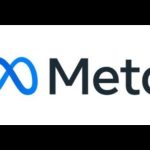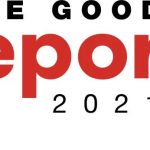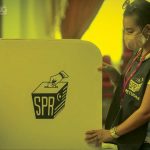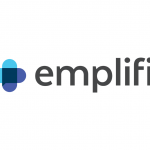Communication professional, Tarek Joseph Chemaly, shares his take on political advertising, as he dissects the campaign ads that rolled out recently ahead of Lebanon’s parliamentary elections.
To understand the elections’ advertising in Lebanon, or any political communication at large, is to admit that there is none. Advertising has three purposes: It introduces a product, tell potential consumers that such product exists in the market, and tries to seduce them to try it.
Of course, there is also maintenance advertising, but originally this is what advertising is all about. Political advertising in Lebanon fails on all three counts. For the simple reason that each faction talks to those already who follow its ideology.
There was only one exception. In the 2008, the Free Patriotic Movement ended up putting a “think correctly” (faker sa7) billboard on Nahr El Kalb with a green background – which is considered as the fief of their arch-rivals the Lebanese Forces (the billboard had a green background the color associated with the Lebanese Forces). The unipole in question got torn and subsequently burned.
However, to come back to the current 2022 elections, which many called “pivotal”, they turned out to be anything but. Of course, the fact that the political fragment, which was issued from the October 2019 social unrest, scored 13 members of the parliament of 128 is no mean feat because this set them apart from the Arab Spring, which failed to materialize politically in the Arab nations’ elections.
These MPs, at least managed to translate some of the anger that people felt towards the traditional political elite in Lebanon who did very little in the aftermath of the violent and deadly explosion in the port of Beirut on August 4, 2020. But also fell short of the many “vote them out” campaigns, which inundated social media prior to the elections.
Just to give credit where credit is due, the “independent” (or “revolutionary” depending on which term is being used to qualify themselves) MPs managed to drive through a very cluttered field, but also through a very shattered independent movement which – during one of the summits they did in 2021 literally came to physical blows, as they disputed issues they do not see (blackened) eye to eye on. The issue in question at the time was civil marriage, which even among the independents, is still a taboo.
Results aside, it was the advertising campaigns which were haphazard. The first axis they based themselves on was hostility towards Hizbullah. In Beirut’s second voting district, a list called “Beirut Touwajeh” – Beirut Stands Up or Beirut Fights Back – which was mainly Sunnite – very clearly invoked this as a major selling point.



The Lebanese phalangists, quite oddly, positioned themselves as an “opposition party”. Despite the fact that the family around which the party gathers has been in power for decades, and was part of the political decisions that culminated in the October 2019 events and the crash that happened after.
Their campaign centered around the idea that they do not compromise. One can be open to other nations without losing one’s notion of statehood; one can have a free economy without losing the element of social justice.

For no apparent reason and as the elections neared, they moved towards a different approach. Instead of them not compromising, it was now up to the people to hold the (other) political parties accountable and to vote for them because they “hold the line” and they “stand up against” (implicitly the classical parties who initiated the crash).
Fouad Makhzoumi, with his “Beirut Badda Alb” (Beirut needs a heart – but also Beirut needs a reshuffle) campaign promised the quasi-impossible in the Line of “for the medicine to flow back, your vote matters”, “for your children to come back, your vote matters” and so on. Playing on the familiar themes of medicine gone amiss in the Lebanese market, in the mass immigration of the youth, in the lack of access to the funds in the banks and so on.

Interestingly, in the very complicated minefield of the Lebanese democracy – called “consensual democracy” where everyone must agree on everything before anything gets approved or done – Makhzoumi (not specifically him, but everyone else who promised anything) does not state how these objectives are to be achieved.
Makhzoumi was neither alone in his promises, nor alone with the ambiguity as how to execute them. Promising and over-promising is a major element in the Lebanese politics. In the elections of 1992 a candidate in south Lebanon, within his electoral manifesto, promised a cure for AIDS.
This year however, was a mixed bag in terms of campaigns. There are several factors, the chief of which is economic. Following the financial crash, which started in 2019, political parties no longer had the financial lifeline they had previously. Whereas funds from outside Lebanon are a usual occurrence, and whereas many nations still had interest in Lebanon, several parties became pariahs in these elections.
However, it is estimated that the Lebanese Forces have spent 13 million dollars in their mega-campaign. The visibility of the campaign however, did not stop it from becoming a meme.
The Lebanese Forces started out with a teaser.

By the time they revealed their central message (“we want and we can”), the campaign had already been hijacked by Khat Ahmar (one of the many opposition fragments), and jokes about it ran galore on social media.
Apart from the financial factor stated above, there was also one related to – what later proved to be inaccurate when the results came out – the public scorn of political parties and their lack of palatability after the August 2020 explosion. In addition, there was a serious threat that the elections would not be held in their pre-agreed upon date so many parties differed their media output accordingly.
The Free Patriotic Movement went with a unified campaign, but also a very minimal one. Long gone were the massive individual billboards, which targeted each different region, and instead a centralized version with a common logo was displayed all over the country where they had candidates.
However, the strong campaign, that never was, was the Mustaqbal party. Their leader, Saad Hariri, has initiated his followers to basically boycott the elections. In 2018, Mustaqbal went with an underwhelming campaign around the idea of “evil eye” (because they are mostly associated with the color blue). This year, obviously, due to the boycott, there was no official campaign.
What happened was that there was a grassroot one whereby followers of the Mustaqbal party took it into their own hands and did a very successful campaign both online and offline. One of the outputs even jabbed at the Lebanese Forces with a line “we can vote we just don’t want to”. Actually the strength of the campaign is the fact that it was never coordinated with the machinery of the Mustaqbal and was headlined with – “mouqata3a la 3younak”.
Just to explain, “la 3younak” was a jingle by singer Ahmad Kaabour for Future Television back when it was setting the pace for what good, creative television was (circa 1997). “La 3younak” means “for your eyes”. And it transcended the television which was owned by Rafic Hariri (father of Saad) to become the slogan his supporters “cuddle” him with. “Moqata3a” is simply boycott.
In its 2018 campaign, Hizbullah promised “we defend and build”, a very sober campaign, which this year became “we keep on defending and building” basically staying the course in their central promise.
Amal, their Shiite ally, which translates into “Brigades of Lebanese Resistance”, but whose acronym translates into “hope” also had a shy campaign. Usually, the center force binding Amal is their leader Nabih Berri so it is no uncommon for people to publish messages directed at him and paid on their own expense.
The elections however, proved as stated at the beginning, that there was no political campaigns in Lebanon. Aside from the independents, there was a continuation of the classic political dynasties in Lebanon or a perpetuation of ongoing figures, which have reigned on the political landscape in Lebanon for decades.
This article was first published on ArabAD
MARKETING Magazine is not responsible for the content of external sites.
An afternoon of conversations we never had, with leaders most of you never met.
Discover what’s possible from those who made it possible. Plus a preview of The HAM Agency Rankings REPORT 2024.
Limited seats: [email protected]
BOOK SEATS NOW








